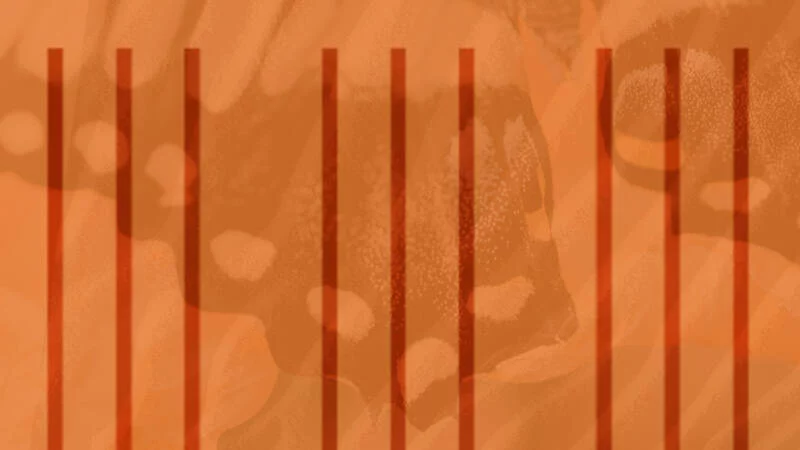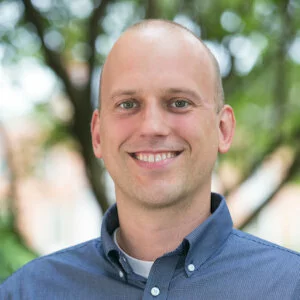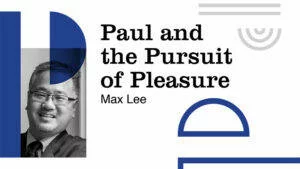 When we flip a coin before a sporting event, are we forcing God to choose an outcome for our own meaningless enjoyment? Or is it a mistake to view God as acting like a magic 8-ball toy who gives answers any time we ask? Many Christians in the West speak theologically in ways that imply the first option; since there are no chance events in the world, every outcome is a divine decision. This would imply, as the English Puritan James Bulmford argued, that Christians should not flip coins before sporting events because it is sinful to invoke God’s action for our amusement. But in practice, most Christians act as if there is no theological significance to flipping a coin or rolling dice. We no longer worry that games of chance are sinful in the ways early generations did. What has changed?
When we flip a coin before a sporting event, are we forcing God to choose an outcome for our own meaningless enjoyment? Or is it a mistake to view God as acting like a magic 8-ball toy who gives answers any time we ask? Many Christians in the West speak theologically in ways that imply the first option; since there are no chance events in the world, every outcome is a divine decision. This would imply, as the English Puritan James Bulmford argued, that Christians should not flip coins before sporting events because it is sinful to invoke God’s action for our amusement. But in practice, most Christians act as if there is no theological significance to flipping a coin or rolling dice. We no longer worry that games of chance are sinful in the ways early generations did. What has changed?
In this short essay, I will try to explain why Christians today are confused about how to think about chance, used here in the ordinary English sense as something accidental or not planned. I will sketch a short history of a transformation that has occurred in the way our culture thinks about chance and probability that began roughly two hundred years after the Reformation. I will conclude with my own preferred way of thinking theologically about chance.
Chance Has Rules That Can Be Known
It is fundamental to Christianity that this world was designed and is providentially overseen by God. Christians from the time of the New Testament were familiar with and rejected Greek philosophical schools that attributed the existence of the world to chance. The seeming design of our world could not be explained, as the Epicureans claimed, by the random motions of atoms in empty space. In the minds of Christians, to invoke chance as an explanation is to not offer a real explanation at all. Chance and purpose lie at opposite ends of the spectrum.
And yet, the language of chance is everywhere in our culture in a way that it would not have been for our premodern Christian predecessors. Contemporary concepts such as chance, probability, and risk emerged at the end of the seventeenth century.Giovanni da Col, “Introduction: Natural Philosophies of Fortune—Luck, Vitality, and Uncontrolled Relatedness,” Social Analysis 56 (August 23, 2012): 7. A paradigm shift about chance is frequently attributed to Blaise Pascal’s attempt to solve a gambling problem: how to divide the stakes in a game if it were interrupted. While others had addressed the problem by dividing the pot proportionally based on the player’s performance to that point, Pascal instead calculated the likelihood that a particular player would win the game from that point onwards.Gerda Reith, The Age of Chance: Gambling in Western Culture (Abingdon-on-Thames: Routledge, 2005), 24. He was able to make calculations about an uncertain future by assuming that even variable events were expressions of stable underlying probabilities.Gerd Gigerenzer, The Empire of Chance: How Probability Changed Science and Everyday Life (Cambridge: Cambridge University Press, 1989), 12. As a French mathematician said in 1708, Pascal had discovered that “chance has rules that can be known.” Chance in the premodern mind was something individual and unpredictable, happening to particular persons at particular times. But in the modern world, chance applies to populations, which means the behavior of many individuals grouped together can be predictable. Insurance companies had existed before this time, but they focused on the risk inherent in each individual case, unaware of the regularities that emerge when risk is aggregated into groups over the long term.Ibid., 26.
From its origins in gambling, probability theory soon was applied to numerous other areas, including the legal field, the business of insurance, and arguments for the existence of God. As a consequence of this paradigm shift, we in the modern world measure chance in countless ways, including insurance, investing, the likelihood of disease, crime, earthquakes, and the success rate of birth control or seat belts.Ian Hacking, “Introduction 2006: The Archeology of Probable Reasoning,” in The Emergence of Probability (Cambridge: Cambridge University Press, 2006), iv. The ability to measure chance and risk helped to make possible the rise of capitalism, the modern state, and has transformed the way we reason about future possibilities, such as whether to bring an umbrella to work or try an experimental drug.
Chance in Science
The rise of probability in the seventeenth century did not overthrow the determinism of Newtonian science. New theories of probability were seen not as a discovery of the world itself but rather as useful tools for human reasoning. Chance entered physical theory only after the dismantling of the classical picture that had emerged in theTaken together, as the historian of science Ian Hacking has argued, these theories cemented an intellectual shift that occurred in Western culture, which altered human understanding of chance and eroded deterministic assumptions. Scientific Revolution, which had proved so successful in predicting the orbits of planets and the trajectory of cannon balls. Newtonian laws of nature were thought to apply precisely and universally, which meant the world acted in definite, predictable ways that allowed for no alternative outcomes. Several developments in physical science challenged this view, most notably the kinetic theory of gases and quantum mechanics, where probability plays a key role in describing the nature and activity of matter. Particles of atomic or subatomic size do not act like the idealized billiard ball of classical mechanics. In the orthodox interpretation of quantum mechanics, particle location is indeterminate; the act of measurement forces the particle into a determinate location, the probability of which can be predicted. Instead of the deterministic, mechanistic world of classical physics, modern physics appears to give a probabilistic one driven by chance.John Polkinghorne, Quantum Theory: A Very Short Introduction (New York: Oxford University Press, 2002), 25.
In biology also, chance played an important new role in scientific theories, most famously in Darwin’s theory of evolution. For Darwin, chance variation in biology promoted the survival of some organisms over others, which allowed for increasingly complex organisms to emerge. Evolution, Darwin said, uses accidental variability in the same way that a builder may use uncut stones for an edifice.As quoted in Gigerenzer, The Empire of Chance, 137. Though Darwin did not use statistical techniques himself, he was influential in the rise of modern statistical thought. For example, many biologists now believe genetic drift, which is essentially a sampling error as the genes from one generation are passed to the next, to be a major driver in evolutionary change.
Taken together, as the historian of science Ian Hacking has argued, these theories cemented an intellectual shift that occurred in Western culture, which altered human understanding of chance and eroded deterministic assumptions.Ian Hacking, The Taming of Chance (Cambridge: Cambridge University Press, 1990), 201.
Implications for Theology
What implications does chance have for theology? I see two main theological ways to integrate modern understandings of chance into Christian theology.
The first way is to affirm there are real chance events in the world in terms of natural causes (what the natural sciences can study), but also to affirm that God has sovereignly determined the outcome of chance events. This would be the view of Thomas Aquinas, who gives the example of two servants who think they that they have met by chance, when in actuality their master intended for them to cross paths.Thomas Aquinas, Summa Theologica, I, 22. ChanceChance is just a term that draws attention to those happenings in our world that we lack the ability to predict. is just a term that draws attention to those happenings in our world that we lack the ability to predict. As Aquinas says in his Commentary on Ephesians, “ . . . it should be realized that many human events which seem to occur by fate and chance, in reality are arranged according to divine providence.”Thomas Aquinas, Commentary on the Letters of Saint Paul to the Galatians and Ephesians (Lander, WY: Aquinas Institute for the Study of Sacred Doctrine, 2012), Ch 1, L 4.
While I appreciate the many strengths of this position, it does have problems. One is comparable to that faced by young-earth creationists: why would God create a young cosmos that looks old (e.g., we receive light from stars millions of light years away)? In this case, why would God make the universe look like it contained real chance when it does not? Imagine flipping a coin one thousand times; this position would say that God not only determines the outcome of each flip, but also chooses outcomes to conform to a 50:50 pattern (what we normally expect from flipping a coin a large number of times) in order to remove evidence that the coin has been altered. But for what reason would God’s decision conform to an equal distribution if deciding each coin flip individually?
Another problem concerns evil and suffering. According to a recent study, almost two-thirds of cancers in humans is a result of chance.Jennifer Couzin-Frankel, “The Bad Luck of Cancer,” Science 347, no. 6217 (January 2, 2015): 12. Cristian Tomasetti and Bert Vogelstein, “Variation in Cancer Risk among Tissues Can Be Explained by the Number of Stem Cell Divisions,” Science 347, no. 6217 (January 2, 2015): 78–81. Assuming this is correct, what is the best way to explain this? One could say that God is intentionally giving people cancer by manipulating the seemingly random biological processes that underlie the disease. But this creates a problem: if we claim God chooses the outcome of biologically random events, it suggests evil outcomes in nature are divinely intended. But why make it appear that cancer is a chance outcome when it really is not? Why would a gambler lose vast sums of money at the casino table just to hide that he or she was really determining the outcome of each roll of the dice?
I personally think that a better way of reconciling chance and providence would be to say that chance events in nature are governed by God’s general providence. Theologians refer to general providence as the actions of God which apply to creation universally and special providence to God’s action in specific cases. Consider falling off a ladder as an example. If God had particular reasons to cause the accident to happen—whether as a judgment for your sins or part of a larger scheme for your life—we would say this was an act of special providence.The result of every casting of a lot is God’s decision (Prov 16:33), but we should not interpret this verse in a way that does away with a distinction between general and special providence. If the accident happened only because God set up the law of gravity, it would result from God’s general providence. In the latter case, God does not actively will the accident but permits it by not intervening to alter the laws of nature. Emphasizing general providence provides a way to acknowledge God as the source of our intricately designed universe while also not making God into a micromanager who directly causes evil. This position only becomes the “hands-off” God of deism if you add the further claim that God never acts within nature, a position I reject. The result of every casting of a lot is God’s decision (Prov 16:33), but we should not interpret this verse in a way that does away with a distinction between general and special providence.
When seemingly chance events such as cancer cause us harm, I think it is better pastorally to say: God will walk with us in suffering and use it for good, or may choose healing in response to prayer, but is probably not targeting you with suffering as a punishment for sin. As Jesus said concerning a tower collapse in Siloam that killed eighteen: “do you think they were more guilty than all the others living in Jerusalem? I tell you no . . . ” (Luke 13:4). In other words, it is a mistake to always blame individuals for their suffering. The Lord’s Prayer teaches us that God’s will on earth is not yet carried out on earth as it is in heaven.
In summary, chance events do not mean that God does not exist or lacks the power to intervene. It instead provides the background against which purposeful action, whether ours or God’s, can be perceived. And these chance events can be quite predictable because of a hidden order that was unknown to our premodern ancestors; chance events have their role in a well-ordered creation. The existence of real chance in the world makes our trust in the providential guidance and comfort of the Good Shepherd all the more meaningful.







Comments
Be the first one to make a comment!